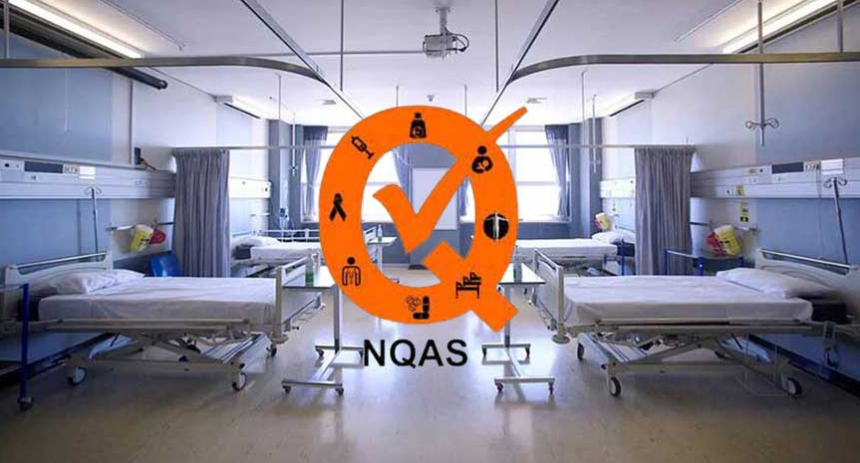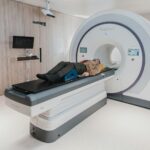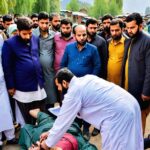India has implemented various National Health Programs to address the healthcare needs of its population. These programs aim to provide accessible and affordable healthcare services, prevent and control diseases, and improve overall public health. Here are some of the key National Health Programs in India:
- National Vector Borne Diseases Control Programme (NVBDCP):
National Vector Borne Diseases Control Programme (NVBDCP) is an umbrella programme for prevention and control of six vector borne diseases viz. Malaria, Japanese Encephalitis (JE), Dengue, Chikungunya, Kala-Azar and Lymphatic Filariasis. In UT of J&K, Malaria Annual Parasite IndexIndex (API) is 0.003, which is better than the national average. Major activities are, making blood smear of all cure cases, examination for Malarial parasite, anti larvalmeasures and fogging during rainy season. In Dengue cases, this programme ensures providing laboratory facilities for diagnosis of Dengue and its treatment. - NVHCP: National Viral Hepatitis Control Programme
National Viral Hepatitis Control Programme was launched by MoH&FW, GOI in July, 2018 with an aim to eliminate Hepatitis C by 2030, to achieve significant reduction in infected population and morbidity associated with Hepatitis B & C.The J&K, UT has established two Model Treatment Centres in Department of Gastroenterology at GMC, Jammu/ GMC, Srinagar and 20 District Level Treatment Centres in District Hospitals under NVHCP. Moreover, J&K, UT has designated two Referral Labs. Deptt. of Microbiology, GMC, Jammu &Deptt. of Microbiology, GMC, Srinagar and 20 District Laboratories under NVHCP. Viral Hepatitis Division, MoH&FW, GoI is supplying various drugs under NVHCP for treatment of Hepatitis B & C patients and same is being distributed to Model Treatment Centres and District Treatment Centres. - National TB Elimination Programme (NTEP):
The programme is implemented by Directorate of Health Services through State TB Officer at Division level and District TB Officer at District Level. The target under this programme is to eliminate TB by 2025. Chest Disease(CD) Hospital Jammu and CD hospital Srinagar are two major hospitals providing treatment to TB patients. All the diagnosis i.e Direct Microscopy, X-Rays, CBNAAT/TRUNAT tests are free of cost. Diagnosed TB patients are provided with free medicines and nutritional support under NPY(Nikshay Poshan Yojana) @ Rs 500 per month for during treatment. The status of all TB patients with regard to diabetes and HIV is also provided. TB Elimination programme is one of the priority areas of GOI and UT Govt. In UT of J&K, District Budgam is declared as TB free in 2020-21, District Anantnag, Pulwama, Kupwara got gold medal and District Baramulla got Bronze medal for Sub National Certification by GoI. - National Leprosy Eradication Programme (NLEP):
National Leprosy Eradication Programme(NLEP)is introduced in 1983. The NLEP’s mission is to provide quality leprosy services free of cost to all the sections of population, with easy accessibility, through the integrated healthcare system, including care for disability cure of the disease. NLEP programme isfunded by NHM and implemented by concerned Directorate through Zonal Leprosy Officer at Divisional level and supported by District.The Main services provided are Information Education and Communication(IEC) for creating awareness about Leprosy, its preventive measures and treatment facilities. The active case finding survey – Sparsh is conducted in areas prone with Leprosy. The treatment of Leprosy is free of cost. - National Rabies Control Programme (NRCP)
NRCP has been approved under 12th Five Year Plan, it has both human and animal health components. Our target of NRCP is that there should be no case of death due to rabies by 2030. Under this programme Anti Rabies Serum( ARS) and Anti Rabies Vaccine ARV is provided to Dog bite/Animal bite victim. The treatment is free of cost and it is funded by NHM. Under the programme Model, Rabies Centres are established (i) at GMC-Jammu and (ii)at GMC- Srinagar. - Integrated Disease Surveillance Programme (IDSP) -IHIP
Integrated Disease Surveillance Programme (IDSP) is a decentralized, State based Surveillance Program.It is intended to detect early warning signals of impending outbreaks and helpsto initiate an effective response in a timely manner. It aims to strengthen/maintain decentralized laboratory based IT enabled disease surveillance system for epidemic prone diseases and to detect and respond to outbreaks in early rising phase through trained Rapid Response Team (RRTs). Whenever, there is a rising trend of illnesses in any area, it is investigated by the Rapid Response Teams (RRT) established in all districts to diagnose and control the outbreak. Data analysis and actions are to be undertaken by State/District Surveillance Units.Initially, IDSP Portal was designed for weekly based reporting of data on portal with only 13 health conditions were monitored. In J&K UT, Integrated Health Information Platform(IHIP) was launched in April, 2021 and reporting was started, on 1st October 2021,the complete migration from old portal to IHIP Portal was done and old IDSP Portal was stopped for reporting, Presently, IHIP is the reporting Portal of IDSP. - 102-108 (JKEMS) Ambulance Services
102-108 Ambulance Service under J&K Emergency Medical Services, an initiative of NHM was launched on 24th March,2020 in the Union Territory of J&K by the then Hon’ble Lieutenant Governor, Sh. G.C Murmuro provide Emergency Medical Services, with immediate response and dispatch of Ambulance to the site of emergency, after the call has been received on Toll Free Numbers108 & 102. Emergency Medical Response Service (EMS) is specialized field where emergency healthcare needs are addressed through well-defined care processed by trained EMS professionals. The important aspect of Emergency response includes early detection of any emergency, immediate response, on-scene care, en-route care and transfer of the victim to healthcare facility. There is greater need to standardize ambulances and professional education for effective delivery of Comprehensive Emergency Medical Response Service. - National Tobacco Control Programme (NTCP)
Tobacco is the leading global cause of preventable death. It kills nearly 6 million people and causes hundreds of billions of dollars of economic damage worldwide each year. Most of these deaths occur in low and middle income countries, and this disparity is expected to widen further over the next several decades. However, a substantial development took place in 2003 with the unanimous adoption of WHO Framework Convention on Tobacco Control (WHO-FCTC). A number of countries have legislation restricting tobacco advertising and regulating who can buy and use tobacco products, and where people can smoke. India has also enacted the tobacco control legislation namely, “The Cigarettes and other Tobacco Products (Prohibition of Advertisement and Regulation of Trade and Commerce, Production, Supply and Distribution) Act” in the year 2003. Further, India is one of the first few countries to have dedicated National Tobacco Control Programme (NTCP). In September, 2011, the global tobacco control movement took on new prominence as global leaders came together in New York for the first ever United Nations High-Level Meeting on Non Communicable Diseases (NCDs). At this historic gathering, world leaders unanimously approved an action plan for combating NCDs that has the potential to meaningfully impact the tobacco epidemic. This plan calls for greater international collaboration and for programs that help combat tobacco. These milestones are impressive, so are the challenges and opportunities ahead. With cross sector commitment and collaboration, millions of lives can be saved by preventing tobacco related deaths. Effective tobacco control, more than anything else, can substantially help reduce the toll of NCDs and prevent related deaths.National Tobacco Control Programme (NTCP) is implemented in all Districts of the UT of J&K through both the Directorates of Health Services. - Biomedical Equipment Management and Maintenance Program( BEMMP)
Biomedical Equipment Management and Maintenance Programme (BMMP) is an initiative by ‘Ministry of Health and Family Welfare Government of India’ through ‘National Health Mission’ to provide support to state Governments to outsource medical equipment maintenance comprehensively for all facilities, so as to improve the functionality and life of equipments, simultaneously improving healthcare services in public health facilities, reducing cost of care and improving the quality of care. On behalf of Government of J&K, JK Medical Supplies Cooperation (JKMSCL) has signed the MOU with M/s Mediciti, Health Care Services, Pvt., Ltd. for a period of 5 years on PPP mode and which is extendable for another term of 5 years (based on performance) with Mediciti on PPP mode.The Project was Started on 18th of November 2019 across the UT of J&K (These Includes, All the District Hospitals, Sub-District Hospitals / Community Health Centres, and Up to PHCs Level) - National Programme for Prevention and Control of Cancer, Diabetes, Cardiovascular Diseases and Stroke (NPCDCS):
In order to prevent and control major Non Communicable Diseases, National Programme for Prevention and Control of Cancer, Diabetes, Cardiovascular Diseases and Stroke (NPCDCS) was launched in 2010 with focus on strengthening infrastructure, human resource development, health promotion, early diagnosis, management and referral. Under NPCDCS, NCD Cells are being established at National, State and District levels for Programme Management, and NCD Clinics are being set up at District and CHC levels, to provide services for early diagnosis, treatment and follow-up for common NCDs. Provision has been made under the programme to provide free diagnostic facilities and drugs for patients attending the NCD clinics. Cardiac Care Units (CCU) are also being set up in identified Districts for providing facilities for emergency Cardiac Care. Day Care Centres at the identified districts are setup to provide facilities for Cancer care.In J&K, Screening for Diabetes, Hypertension and three Major cancers is done at Health and Wellness Centre(HWCs) and uploaded on NCD Portal. - National Quality Assurance Standards (NQAS):
National Quality Assurance Standards have been developed keeping in the specific requirements for public health facilities as well global best practices. NQAS are currently available for District Hospitals, CHCs, PHCs and Urban PHCs. Standards are primarily meant for providers to assess their own quality for improvement through pre- defined standards and to bring up their facilities for certification. The National Quality Assurance Standards are broadly arranged under 8 “Areas of Concern”– Service Provision, Patient Rights, Inputs, Support Services, Clinical Care, Infection Control, Quality Management and Outcome. These standards are ISQUA accredited and meets global benchmarks in terms of comprehensiveness, objectivity, evidence and rigour of development. - Kayakalp:
Clean environment improves healing and Fastens recovery, besides enhancing patients’ experience at health facility. The Union Health and Family Welfare Minister Shri J P Nadda has launched ‘Kayakalp Award Scheme’ on May 15, 2015 as an extension of ‘Swachh Bharat Mission’. Aim of initiative was to improve and promote the cleanliness, hygiene, waste management and infection control practices in public health care facilities and incentivize the exemplary performing facilities:
The objectives of the award scheme are:
1) To inculcate a culture of ongoing assessment and peer review of performance related to hygiene,
sanitation and infection control.
2) To incentivize and recognize public healthcare facilities that show exemplary performance in adhering
to standard protocols of cleanliness, infection control and sanitation,
3) To create and share sustainable practices related to improving cleanliness in public health facilities
which lead to positive health outcomes. - Rashtriya Kishor SwasthyaKaryakram(RKSK) :
In order to ensure holistic development of adolescent population, the Ministry of Health and Family Welfare launched Rashtriya Kishor Swasthya Karyakram (RKSK) on 7th January 2014 to reach out to 253 million adolescents – male and female, Rural and Urban, married and unmarried, in and out-of-school adolescents with special focus on marginalized and undeserved groups. - MENSTRUAL HYGIENE SCHEME(MHS)
The Ministry of Health and Family Welfare has introduced a scheme for promotion of menstrual hygiene among adolescent girls in the age group of 10-19 year in rural areas.The major objectives of the scheme are (i) to increase awareness among adolescent girls on Menstrual Hygiene (ii) to increase access to and use of high quality sanitary napkins to adolescent girls in rural areas. - Mera Asptaal(MA):
Mera Aspataal (My Hospital) is a Ministry of Health and Family Welfare, Government of India (GOI) initiative to capture patient feedback on the services received from both public and empanelled private health facilities. It works through multiple communication channels, including Short Message Service (SMS), Outbound Dialling (OBD), a mobile application, and a web portal.The application allows feedback to be consolidated, analysed and disseminated on a frequently updated dashboard. Analysed data will be used to improve quality of services in healthcare facilities. Thus My Hospital aligns with the citizen-centric MyGov platform of GOI which allows patients to connect with the healthcare providers and policymakers and to have their opinion heard and acted upon. - PRADHAN MANTRI NATIONAL DIALYSIS PROGRAM(PMNDP):
The Pradhan Mantri National Dialysis Program (PMNDP) aims at strengthening of District Hospitals by providing affordable dialysis services. In J&K, all 20 District hospitals are having operational dialysis units to implement this Programme. - NHM Free Diagnostics Service Initiative
Government of India under the National Health Mission launched the Free Essential Diagnostics Initiative to address the high out of pocket expenditure on diagnostics. The objective of the Free Diagnostic Services Initiative program is to ensure availability and access to diagnostic tests at public health facilities so as to reduce out of pocket expenditure incurred by patients on diagnostics. Provision of appropriate diagnostics is necessary and critical in providing adequate comprehensive healthcare services in public health facilities.In UT J&K free drugs and Diagnostics initiative programme is functional in HWCs only. - DVDMS (Drugs and Vaccine Distribution Management System:
It is a software platform to automate various activities of Directorate General Medical Health, Ministry of health and family welfare Govt. Of India. It comprises of Drug and Vaccine Supply Chain Management that deals with Purchase Order, Inventory Management & Distribution of various drugs etc.In J&K , DVDMS is funded by NHM and is operational by J&K Medical Supplies corporation Ltd. - National Programme on Climate Change & Human Health (NPCCHH):
The programme aims:-
i. To create awareness among general population (vulnerable community), health-care providers and Policy makers regarding impacts of climate change on human health.
ii. To strengthen capacity of healthcare system to reduce illnesses/ diseases due to variability in climate.
iii. To strengthen health preparedness and response by performing situational analysis at national/ state/ district/ below district levels.
iv. To develop partnerships and create synchrony/ synergy with other missions and ensure that health is adequately represented in the climate change agenda in the country.
v. To strengthen research capacity to fill the evidence gap on climate change impact on human health. In J&K, UT Organizing Committee state task force and environmental Cells has been officially framed by General Administration Department, J&K. ARI surveillance is being carried on in three sentinel Hospitals in Jammu City. - Maternal Health
(i) Janani Suraksha Yojana (JSY)
In order to promote safe institutional deliveries, the Govt of India has implemented JSY throughout the country including Jammu & Kashmir.The JSY is being implemented in all Govt. Hospitals of the state to enable increase in no. of institutional deliveries and reduce maternal, infant mortality and in particular neo-natal mortality by promoting institutional delivery among the needy and poor pregnant women of rural and urban areas. The JSY is being implemented in the State since 2005-06.The JSY benefits to the mother are being paid after the delivery and before the discharge, but not later than 7 days of delivery. In case of referrals, the payment is made within 15 days of delivery. All the payments are being made through DBT mode of payment. Under this scheme, the incentives are being paid to mother beneficiaries at the following norms:
S.No. Area Incentive for mother beneficiary
1 Rural areas Rs. 1400.00
2 Urban areas Rs. 1000.00
3 BPL mothers delivering at home Rs. 500.00ASHAs will facilitate antenatal checkups and accompany the mothers to the health institutions for delivery and will get the following incentives:
S.No. Area Incentive for ASHA
1 Rural Areas Rs.600.00
(For facilitating full ANC and institutional delivery)
2 Urban Areas Rs. 400.00
(For facilitating full ANC and institutional delivery)
(ii) Janani Shishu Suraksha Karyakarm (JSSK)
With the launch of the Janani Suraksha Yojana (JSY), the number of institutional deliveries has increased significantly. There are however, about 15 to 20% pregnant women who still hesitate to access public health facilities. Those who have opted for institutional delivery are not willing to stay for 48 hours, hampering the provision of essential services both to the mother and neonates, which are critical for identification and management of complications during the first 48 hrs after delivery.To encourage women to stay for 48 hrs at the facility after delivery and to make zero out of pocket expenditure, Janani ShishuSurakshKaryakarm (JSSK) has been implemented in the State vide Govt. Order No. 516-HME of 2011 since October 2011, with a view to encourage all pregnant women to deliver in Public Health Facilities and full fill the commitment of achieving cent percent Institutional deliveries. JSSK aims at mitigating the burden of out-of-pocket expenses incurred by families of pregnant women and sick infants, and is acting as a major factor in enhancing access to public
health institutions and helps in bringing down the Maternal and Infant Mortality. The entitlements under the programme for Pregnant
Women & Infants are:-
1. Free and zero expense treatment.
2. Free drugs and consumables.
3. Free diagnostics.
4. Free Diet to mothers during hospital stay.
5. Free provision of blood, preferably on replacement basis.
6. Free transport from home to health institution, between health institutions in case of referrals and drop back home.
7. Exemption from all kinds of user charges.(ii) Maternal Death Surveillance & Response (MDSR):
Maternal Death Review (MDR) strategy has been implemented in the State since 2011-12 to analyze various factors responsible for maternal deaths at community level as well as at facility level. It is an important strategy to improve the quality of obstetric care and reduce maternal mortality and morbidity. The importance of MDR lies in the fact that it provides detailed information on various factors at facility, district, community, regional and national level that are needed to be addressed to reduce maternal deaths. Analysis of these deaths can identify the delays that contribute to maternal deaths at various levels and the information used to adopt measures to fill the gaps in service.
At the District level the Maternal Death Review is envisaged at two levels.
a) Maternal Death Review under chairmanship of CMO.
b) Maternal Death Review by District Level Committee under chairmanship of District Magistrate.Composition of District Level Committee
District Magistrate Chairperson
Chief Medical Officer Member Secretary/ Convenor
Dy. Chief Medical Officer Member
District Nodal Officer (MDR) Member
Facility Based Nodal Officer (MDR) Member
Representative of Federation of Obstetric and Gynaecological Society of
India (FOGSI)
Member
(iii) Pradhan Mantri Surakshit Matritva Abhiyan (PMSMA):
With an objective to provide quality ANC to every pregnant woman, the Government of India has launched the
“Pradhan Mantri Surakshit Matritva Abhiyan” (PMSMA), a fixed day ANCs to be given on 9th of every month across the country, where pregnant women will get antenatal care services by Specialists & Medical Officers at the PHC/CHC/DH levels. This is to be given in addition of the routine ANC at the health facility. If the 9th day of the month is a Sunday/ a holiday, then the services shall be provided on the next working day.
This new initiative was rolled out in Jammu & Kashmir on 9th June, 2016 in all the districts of the state. Under this campaign, a minimum package of antenatal care services would be provided to beneficiaries on the 9th day of every month at health facilities to ensure that every pregnant woman receives at least one checkups in the 2nd and 3rd trimester of pregnancy and to ensure that no high risk pregnancy goes undetected. During this campaign, trained service providers and ASHAs will focus their efforts to identify and reach out to pregnant women who are not registered for ANC (left out/ missed ANC) and also those who are registered but those who did not avail ANC services (dropout) as well as High Risk pregnant women. It will also be ensured that not only all pregnant women complete their scheduled ANC visits, but also undertake all essential investigations. While 9th of every month will be organized as a special day, it is reiterated that the existing, routine and planned services such as ANC, PNC etc. will continue to be delivered at all the facilities as scheduled in their respective microplans.
(v) Surakshit Matritva Aashwasan (SUMAN):-
Under SUMAN, all existing initiatives for strengthening Maternal & Child Health like JSY, JSSK, PMSMA, MDSR, LaQshya, FBNC, HBNC, HBYC have been subsumed under one umbrella in order to create a comprehensive initiative which goes beyond entitlements and provides assured service guarantee for the entitlements. In this regard ,Govt of J&K, GAD Deptt. has constituted Committees at Union Territory level, District Level and Block Level for implementation of SUMAN vide Govt. order no 688-JK(GAD) of 2021 dated 05-08-2021. To ensure implementation of key activities under SUMAN initiative sanction is accorded to notification of SUMAN CEMONC, SUMAN BEMONC and SUMAN basic facilities vide Govt. order no 683- JK(HME) of 2021 dated 27-10-2021 issued by Health & Medical Education Department, J&K. Establishment of Obstetric ICU at Medical Colleges: For management of high risk pregnancies who have progressed to a clinical condition where there is multi-organ involvement/failure, thus requiring vigilant monitoring and interventions by specially trained teams, 4 bedded Obstetric ICUs have been established, one each at SMGS Hospital Jammu & LD Hospital Srinagar under NHM, for providing quality care during obstetric &gynaecological emergencies. - ASHA Programme:
ASHA (Accredited Social Health Activist) is a band of female health volunteers which has been created as one of the key components of the National Health Mission. She is a trained female health activist in the community to create awareness on health and mobilizes the community towards local health planning, increased utilization of health services so as to increase accountability of the health service providers. The ASHA Programme has been implemented in all 20 districts and 109 blocks of the UT with about 816 ASHA clusters being developed for better management of the programme.
The ASHA Facilitators, Block ASHA Coordinators & District ASHA Coordinators are the ASHA Cadres and they are the officials of permanent cadres of Health Department, for mentoring and monitoring at Cluster, Block, and District level respectively.
Job Functions of ASHA
(i) Maintaining Village Health Register and supporting universal registration of births and deaths (to be updated on monthly basis) and record of all the services provided viz. registration of pregnant women, ANC, immunization, spacing methods e.g. condoms, oral pills, IUCD, sterilization (male/female), referral of sick newborns/infants/children etc.
(ii) Monthly line listing of households at the beginning of the year and to be updated after six months e.g. below one year children and pregnant women.
(iii) Preparation of list of eligible couples on monthly basis.
(iv) ASHA is a main service provider for Home Based Newborn Care. She has to provide newborn care through home visits and weighs the newborn, measures newborn temperature, ensuring warmth, promote hand washing, provides skin, cord & eye care, ensures exclusive breast feeding etc and provide support and counselling to the mother and her family. She has also to detect signs and symptoms of sepsis, recognizes postpartum complications of the mothers and refer them appropriately. In case of institutional delivery ASHA has to go for six home visits i.e. on 3, 7, 14, 21, 28 & 42 and in case of home delivery seven home
visits i.e. 1, 3, 7, 14, 21, 28 & 42 are mandatory.
(v) Preparation of due list of beneficiaries such as children, pregnant women /ANC beneficiaries etc for immunization/ services and updates the list on monthly basis.
(vi) Reporting of Maternal and Infant deaths at the community level.
(vii) Follow up of Low Birth Weight (LBW) babies after their discharge from Sick Newborn Care Unit (SNCU).
(iv) Follow up of Severely Acute Malnourished children discharged from Nutritional Rehabilitation Centres (NRCs).
(v)Identify and mobilizing the dropout/ left out pregnant women and children for immunization.
(vi) Accompanies the pregnant women to the institution for delivery.
(vii) Tracking of pregnant women from early registration in the first trimester up to post natal care after delivery in her
respective area.
(viii) Tracking of children up to full immunization.
(ix) Assists the FMPHWs and AWWs in organizing Village Health & Nutrition Days (VHND).
(x) Attends monthly cluster meeting with ASHA facilitator of her area and submit reports as per her diary.
(xi) Facilitates monthly meeting of VHSNC followed by the meeting of women and adolescent girls.
(xii) Detects/ refers and help in getting treatment of cases of malaria, TB, Leprosy etc.
(xiii) Assists in selection of four Peer Educators (two females and two males) from her village for Peer Education Programme under RKSK, to ensure that adolescent or young people between the age of 10-19 years benefit from regular and sustained peer education.
(xiv) Mobilizing adolescents for Adolescent Health Days (AHDs) to be organized in every village once in every quarter on a convenient day (preferably on Sunday).
(xv) Maintains ASHA Diary on day to day basis.
Criteria For Selection of ASHA as Per GoI Guidelines:
(i) One ASHA has to be in place for population of 1000.
(ii) ASHA must be a Married /Widow /Divorced woman resident of the same village and preferably in the age group of 25 – 45 years.
(iii) She should have formal education up to 10th Standard. This may be relaxed only if no female is there with this qualification in the village.
(iv) She should have effective communication skills, leadership qualities and be able to reach out to every section of the community.
(v) Adequate representation from disadvantaged population groups should be ensured, to serve such groups better.
NIOS Certification of ASHAs:
(i) NIOS project has been initiated by Ministry of Health & Family Welfare GOI in collaboration with National Institute of Open Schooling (NIOS) for certification of ASHAs to enhance competency of ASHAs through knowledge and skill assessment.
(ii) The aim of the NIOS project is to certify the ASHA trainers, Training sites and ASHAs. The certification of ASHAs shall provide a legal and administrative frame work within which the ASHA would be eligible and responsible for providing community level care for range of illness. This would enhance the competency and professional credibility of ASHAs and would promote a sense of self recognition and work within the ASHA.Social Security Schemes of ASHAs:
NHM, J&K is providing various social security schemes to the ASHAs of J&K:
NHM, J&K shall be paying compensation to the family if an ASHA suffers loss of life or is permanently disabled, or is suffering from a life threatening condition.
In case of permanent disability to an ASHA due to any natural or unnatural cause, she will be paid lump sum amount of Rs 2.5 lakhs.
If an ASHA suffers from loss of life, the legal dependant of the deceased will be paid Rs 5 lakhs lump sum amount one time. She shall also be getting financial assistance of upto Rs. 2 lakhs for grave health conditions requiring medical interventions. - DNB COURSES UNDER NBE in UT of J&K:
National Board of Examinations (NBE), established by the Government of India has been improving the quality of Medical Education by establishing high and uniform standards of postgraduate examinations in modern medicine on All India basis. NBE conducts post graduate and post-doctoral examinations in approved disciplines leading to the award of Diplomate of National Board (DNB) and Fellow of National Board (FNB). DNB Courses have been initiated in the District Hospitals of UT of J&K in 2019-20, keeping in view the urgent need of strengthening the District Hospitals, thereby enhancing the scope of specialized clinical services, teaching & research in the District Hospitals. This could also generate significant amount, additional revenue and decongest the tertiary care facilities to a larger extent.
Benefits:
1. Additional Manpower especially the availability Specialists at District implementing DNB.
2. De-congestion of Govt. Medical Colleges.
3. Reduction in referral from the facilities to tertiary care institutes.
4. There will be strengthening of the peripheral care facilities.
5. The institution will get 10% extra on every identified package over and above which is allowed under individual packages under Ayushman Bharat Programme.
6. The Districts applying for DNB courses have to quality for NQAS also and get 25% incentive from the Ministry of Health & Family Welfare, Govt. of India.
7. There will be opportunities for Medical professionals for research, training and teaching experiences.
8. The institution (DH/ CHC) shall become a teaching hospital.
i. Health & Wellness Centres(H&WC):
Provision of Comprehensive Primary Health care is an integral and pivotal part of Universal health Coverage(UHC) and there ia felt need of generating evidence to evolve innovative solutions for strengthening the Primary Health care. Comprehensive Primary Health care includes the delivery of a package of primitive, primitive, curative and rehabilitative services delivered close to communities by Health care providers.
ii. Rashtriya Bal Swasthya Karyakaram(RBSK):
Rashtriya Bal Swasthya Karyakaram(RBSK) is another initiative of MoH&FW, GoI under National Health Mission which aims at screening children from 0 to 18 years of age for Ds- Defects, Deficiencies and Development delays including Disabilities. Children diagnosed with these defects/ diseases shall receive free of cost treatment including surgical interventions and follow up at tertiary level under this programme. The objective of this initiative is to improve the overall quality of life of children, decrease child morality, morbidity and out of pocket expenditure of the poor family.Child Health Screening and early intervention services envisage to cover 30 identified health conditions for early detection, free treatment and management through dedicated mobile Health teams at block level in the country. The mobile Health teams comprising of (Doctors and Paramedics) carry out screening of all the children in the pre- School age(6 weeks to 5 years) enrolled at Anganwadi Centres at least twice a Year besides, screening of all children(6-18) studying in Government and Govt. aided Schools whereas, the newborns are being screened for birth defects in health facilities by service providers and 0-6 weeks during the Home visits by ASHAs. - Blood Services:
Increasing advancement in the field of Transfusion Technology has necessitated enforcing strict control over the quality of Blood and its products. 25 Blood Banks including tertiary care hospitals and 30 Blood Storage units are functional in the UT of J&K. Blood Component Separation Units (BCSU) are functional in Govt. Medical College Hospitals of Jammu/ Srinagar and Seven more BCSUs are in a process to procure equipments five for new GMCs and one each in JLNM Hospital Srinagar and one in Govt. Hospital Gandhi Nagar, Jammu. To ensure prevention of transfusion Transmitted Infections advanced type of testing is being done in GMC Jammu/ GMC Srinagar i.e. NAT Nucleic Acid Amplification Test. Two Blood Collection and Transport Vans under the programme are used for blood donation camps in rural areas one is under the administrative control of Directorate of Health Services, Jammu and another is under the administrative control of Principal GMC, Srinagar.
















